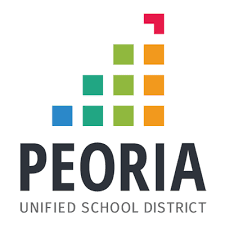UPDATE: On May 2, U.S. District Judge Michael Liburdi, a Donald Trump appointee, took the almost unprecedented action of denying FFRF’s unopposed motion to file its friend off the court brief.
In an amicus brief filed today, the Freedom From Religion Foundation and the Secular Coalition for Arizona are asking a federal district court to dismiss a case that a religion-spouting board member has brought against her school board in Arizona.
The case arises from last May, when FFRF and Secular Coalition for Arizona requested Peoria (Ariz.) Unified School District to halt board member Heather Rooks’ quotations from the bible at every board meeting. The board’s attorney agreed with the secular organizations’ analysis and advised that the bible quotations subjected the board to legal liability. Rooks filed a federal suit in September in the U.S. District Court of Arizona against her school board, contending that her free speech rights were being curtailed. Rooks is represented by the First Liberty Institute, a Christian theocratic organization.
FFRF and Secular AZ’s brief is asking the court to dismiss the case for a variety of reasons.
First, FFRF maintains, this case cannot proceed because there is no actual case or controversy to adjudicate. Rooks is asking the court to issue an advisory opinion. A plaintiff must have suffered an actual injury-in-fact for a case or controversy to exist, but, FFRF and Secular AZ point out, Rooks cannot point to a single official action taken by the board that has injured her. The board has not prevented Rooks from performing her duties or taken legal action against her. She complains of legal advice given by the board’s attorney, but receiving legal advice from one’s own counsel does not constitute an injury. She complains of comments she received in response to her continued bible readings, but such comments do not constitute official action by the board.
In this instance, the board received two letters from third parties, FFRF and Secular AZ, arguing that Rooks’ actions violated the law and potentially alienated non-Christian and nonreligious meeting citizens. “What Rooks’ complaint ultimately amounts to is that she received legal advice, in her official capacity as a Board member, and she disagrees with that advice. She urges this Court to issue an advisory opinion declaring that she has the legal right to do something that the government has not actually prevented her from doing,” the brief states.
Additionally, Rooks is still a member of the board on equal footing with all other members of the board. Rooks is not suffering from a credible threat of removal or any other materially adverse action. While this litigation has been pending, Rooks has continued to carry out her duties as a board member uninhibited. In short, Rooks will not suffer a hardship if this court defers this case until a real, actual, concrete factual situation ripe for review arises. “Because the board has not taken any materially adverse action against Rooks, there is no case or controversy fit for this court to adjudicate,” FFRF’s brief summarizes.
There are other things to also keep in mind, FFRF’s brief contends.
Rooks is asking the district court to evaluate whether her conduct amounts to a constitutional violation, a question which, if answered in the affirmative, would create legal liability for the district. Rooks is the perpetrator of the alleged religious promotion, not one of the many community members whose constitutional rights are violated when she uses her government platform to promote her personal religious beliefs. And the district is the government entity ultimately responsible for upholding the Establishment Clause, the entity that would ultimately face legal liability for an Establishment Clause violation. Because it is not in either party’s legal interest to argue that it would, in fact, be an Establishment Clause violation if the board permitted Rooks to continue promoting her personal religious beliefs while conducting official business on behalf of the board, the parties lack adversity on this issue.
And Rooks has misidentified the applicable legal test, all but ignoring binding precedent from the 9th U.S. Circuit Court of Appeals that applied the test in an analogous situation and found that religious remarks delivered at school board meetings do, in fact, violate the Establishment Clause. The appeals court reaffirmed in FFRF v. Chino Valley Unified School District Board of Education that Establishment Clause concerns are heightened in the context of public schools “because children and adolescents are just beginning to develop their own belief systems, and because they absorb the lessons of adults as to what beliefs are appropriate or right.” The Chino Valley Unified School District was ordered to pay over $275,000 in plaintiffs’ attorney fees and costs to FFRF.
For the many reasons cited above, the Freedom From Religion Foundation is asking the U.S. District Court of Arizona to dismiss the case.
You can read the full FFRF amicus brief here.
The brief was filed by Arizona attorney Julie Gunnigle and was drafted by FFRF attorneys Sam Grover and Sammi Lawrence, along with Secular AZ attorney Dianne Post.
The Freedom From Religion Foundation is the nation’s largest association of freethinkers (atheists and agnostics) with 40,000 members and several chapters nationwide, including more than 1,000 members and a chapter in Arizona. It works to buttress the constitutional separation between state and church.


